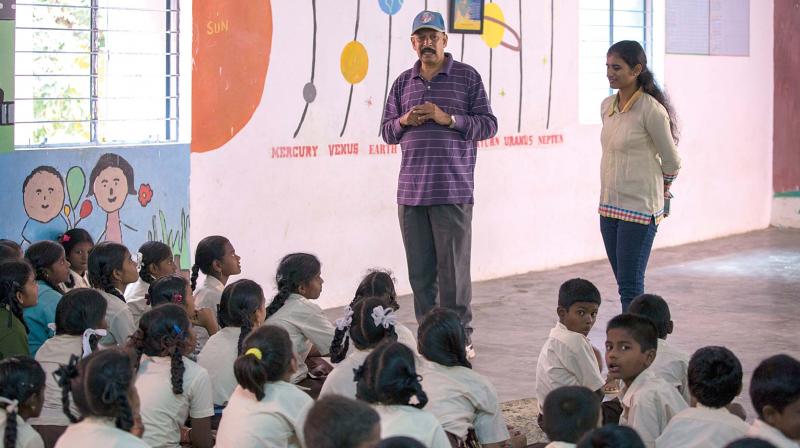Makkala Jagriti; Spicing' up learning for the poor

BENGALURU: In a state which is already battling issues related to education, like infrastructure and human resources, the NGO Makkala Jagriti (Awakening of Children) comes as a boon for underprivileged children. The organisation, founded in 2003, is motivated by a vision to empower underprivileged children through a holistic approach to learning. “The NGO was started with the intention to help children from marginalised communities receive quality intervention by not just emphasising on education, but also helping them overcome their fears associated with education," explains Joy Srinivasan, founder, chairperson and managing trustee, Makkala Jagriti.
“This primary focus led us to work towards institutionalising government school systems with a holistic learning model within government schools and influencing communities through our centres in urban slum communities to ensure greater access to a well-rounded education for all children,” she says. “Our learning system looks at evoking other parts of developing the children and helping them think creatively and manage their emotions well. We always keep in mind that these children walking into government schools might be the first generation of school-goers with no backup support in their houses and no role models," she says.
The organisation works on two models. In the first model, their team directly works with the urban slum community by initially setting up learning centres and these become their safe place to learn and explore. “It makes them really excited about school. It instils eagerness in them," she explains. "The second model is where we directly set up a learning centre at the government school. We take a classroom in the school, set up a learning centre with a library, computer lab and other stationery support and the school will deploy two facilitators who are well trained. Also, the school will allot each class one period every day," explains Chief Functionary Murali M., who says that the learning centre is open for children from standard 1 to 7 and has a one-hour session each day at the centre.
The organisation sets up the centre by taking necessary approval by Block Education Officer and the headmaster of the school by discussing their model and what is suitable for teachers and students.
“We have close to 40 holistic development centres in Bengaluru, Koppal and Gadag districts, including community learning centres (centres opened in slums) and school learning centres," he adds. It has some 50 programme coordinators and facilitators, with each coordinator managing 3-4 schools. “Our facilitators are armed with skills to adapt and incorporate our child-centric approach and each child is taught according to his or her own learning abilities irrespective of his age or class," he says. But it is not easy to execute such an extensive programme across government schools. “It is difficult to get funds from the government when working with the government. We spend Rs 400 per month per child. We rely on corporates, individual donors and other foundations for funds," he says and adds that setting up and running cost for each school runs up to some Rs 8 lakh. The dropout rate has reduced drastically and the enrollment rate has increased at schools where the learning centres have been set up, he says. “Our child-centric approach allows us to respect the child’s physical, professional and learning boundaries. We unconditionally accept all children, irrespective of their background, gender and ability level. We trust and believe that the children have the freedom to make their own choices,” sums up Joy. .

